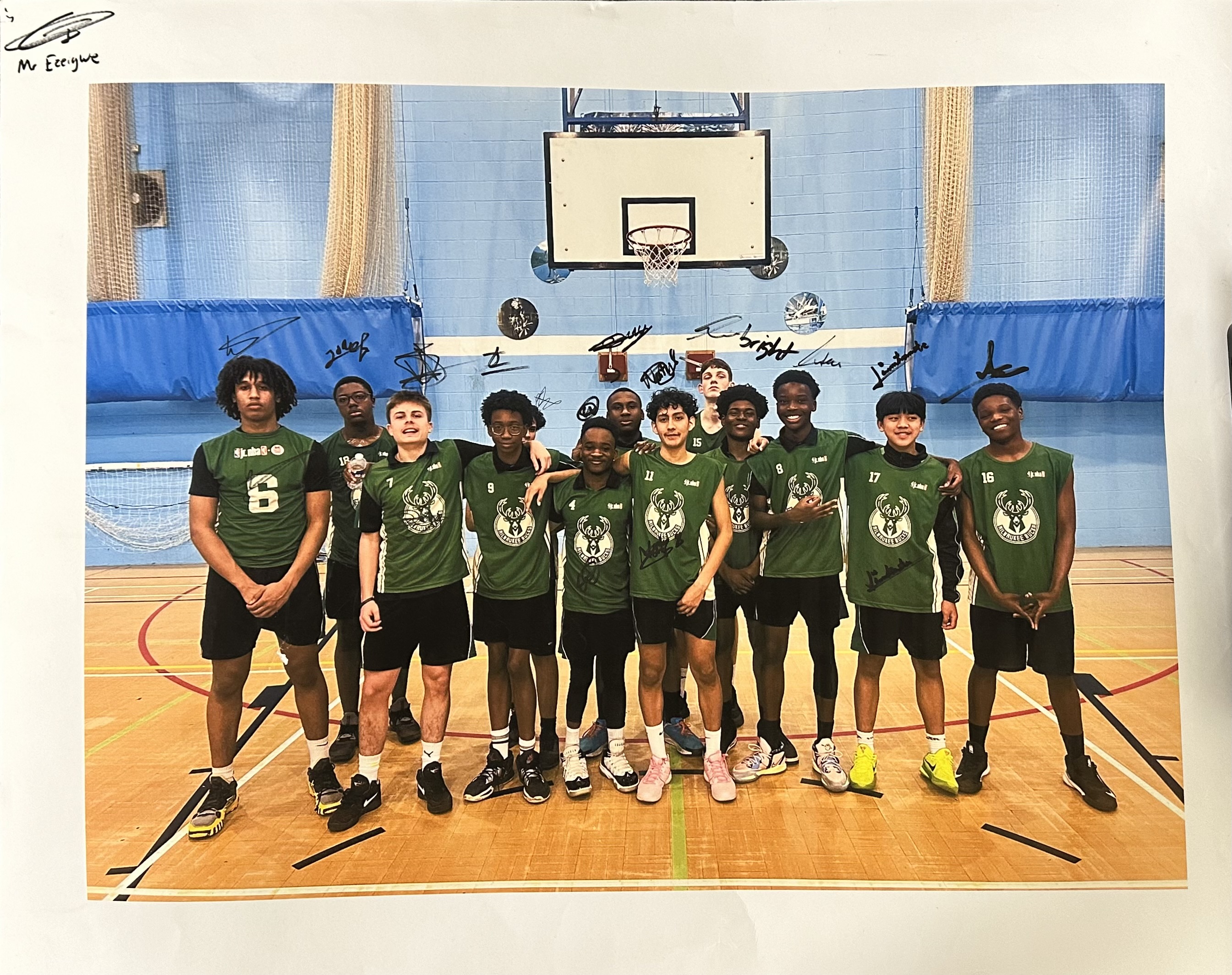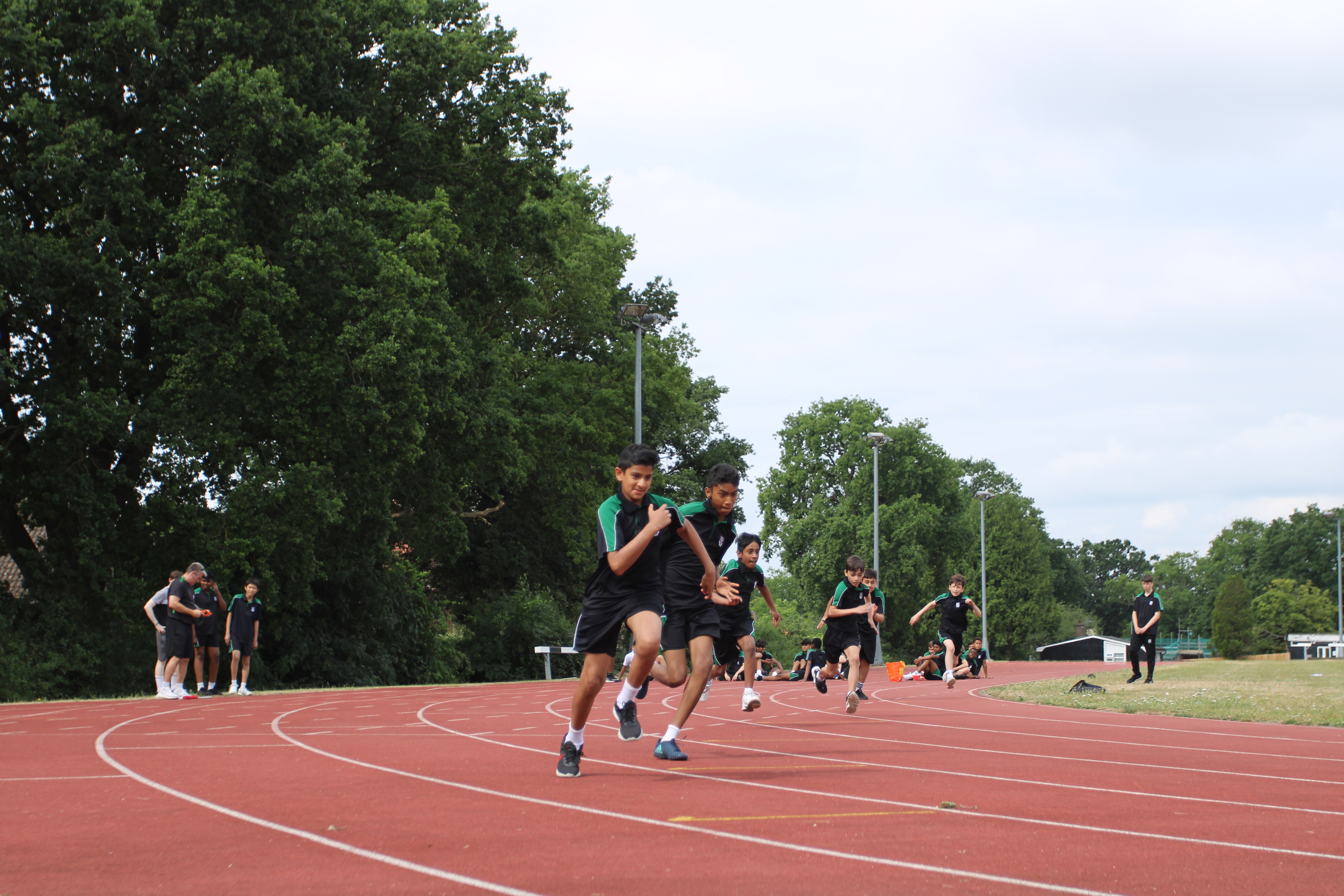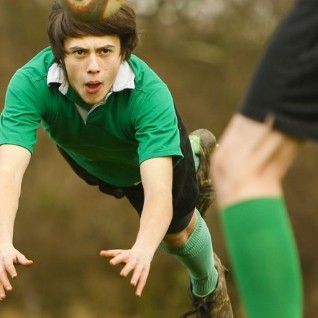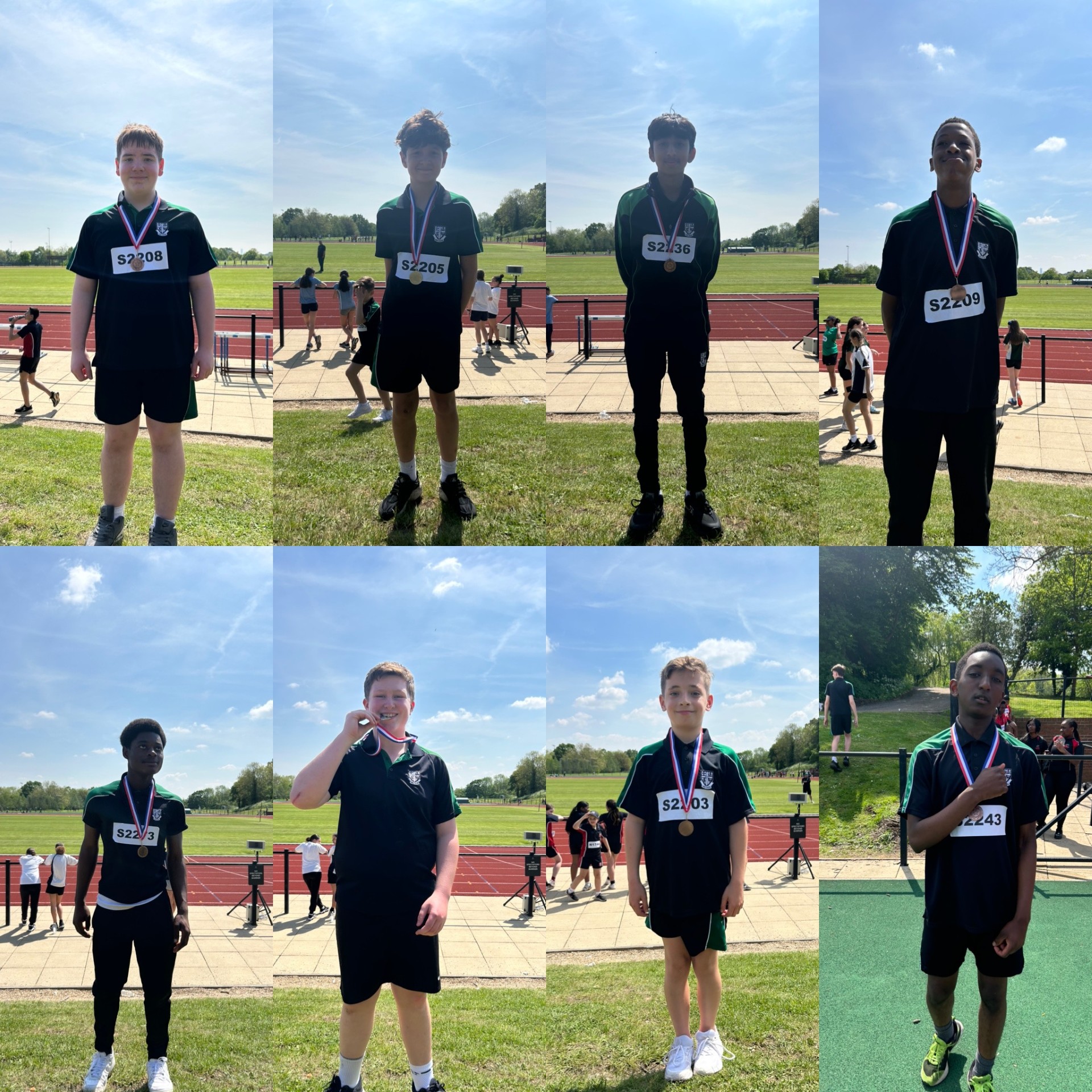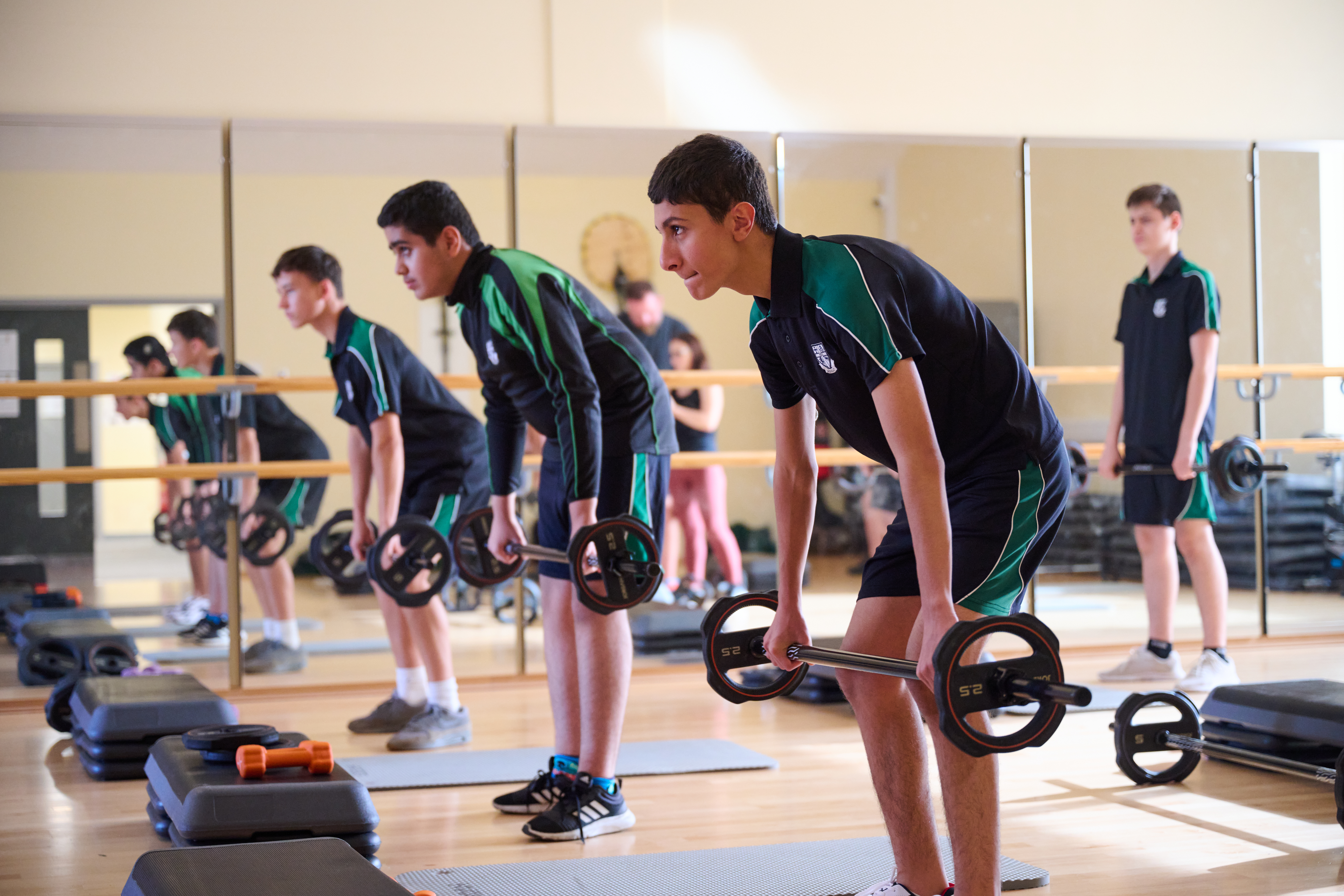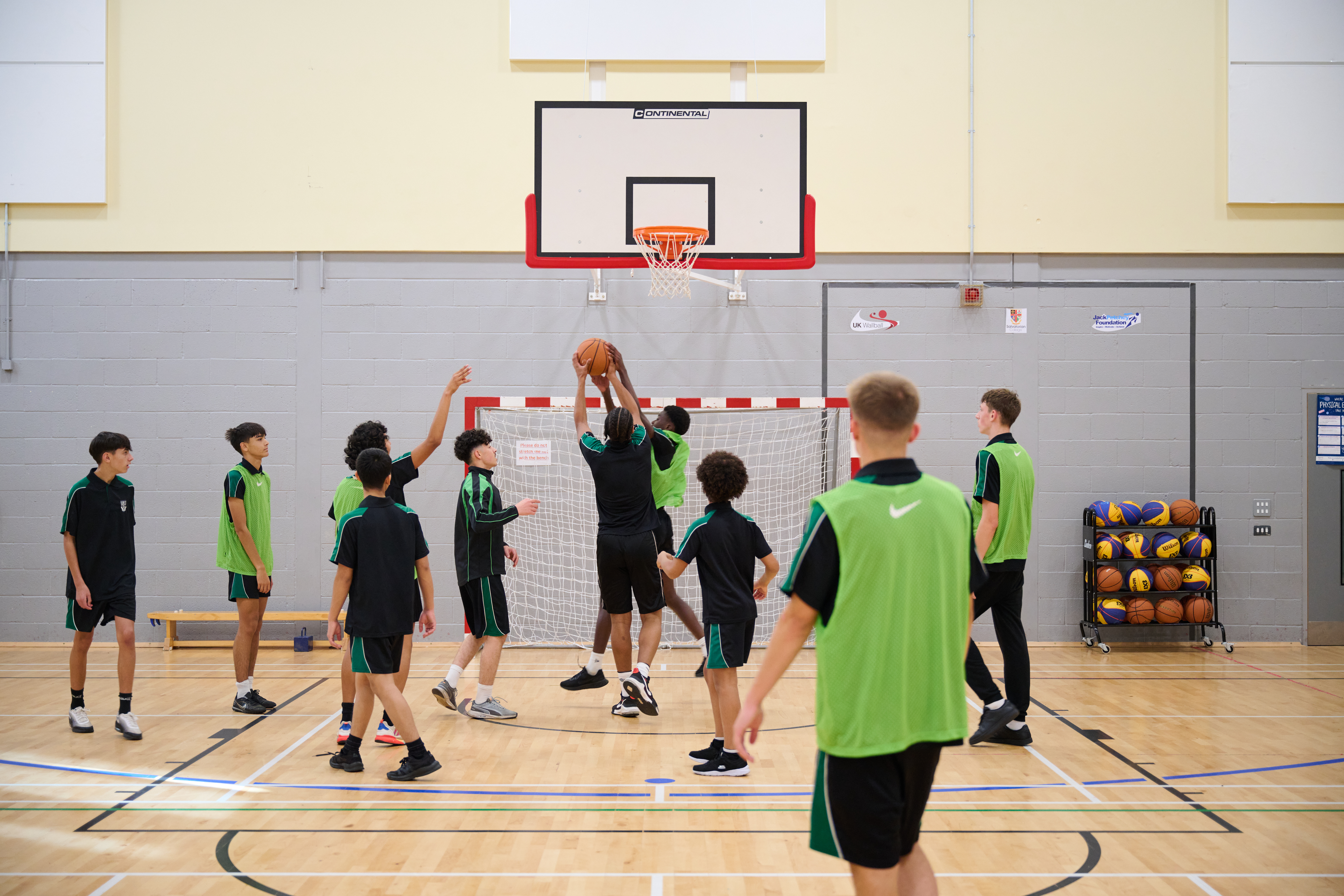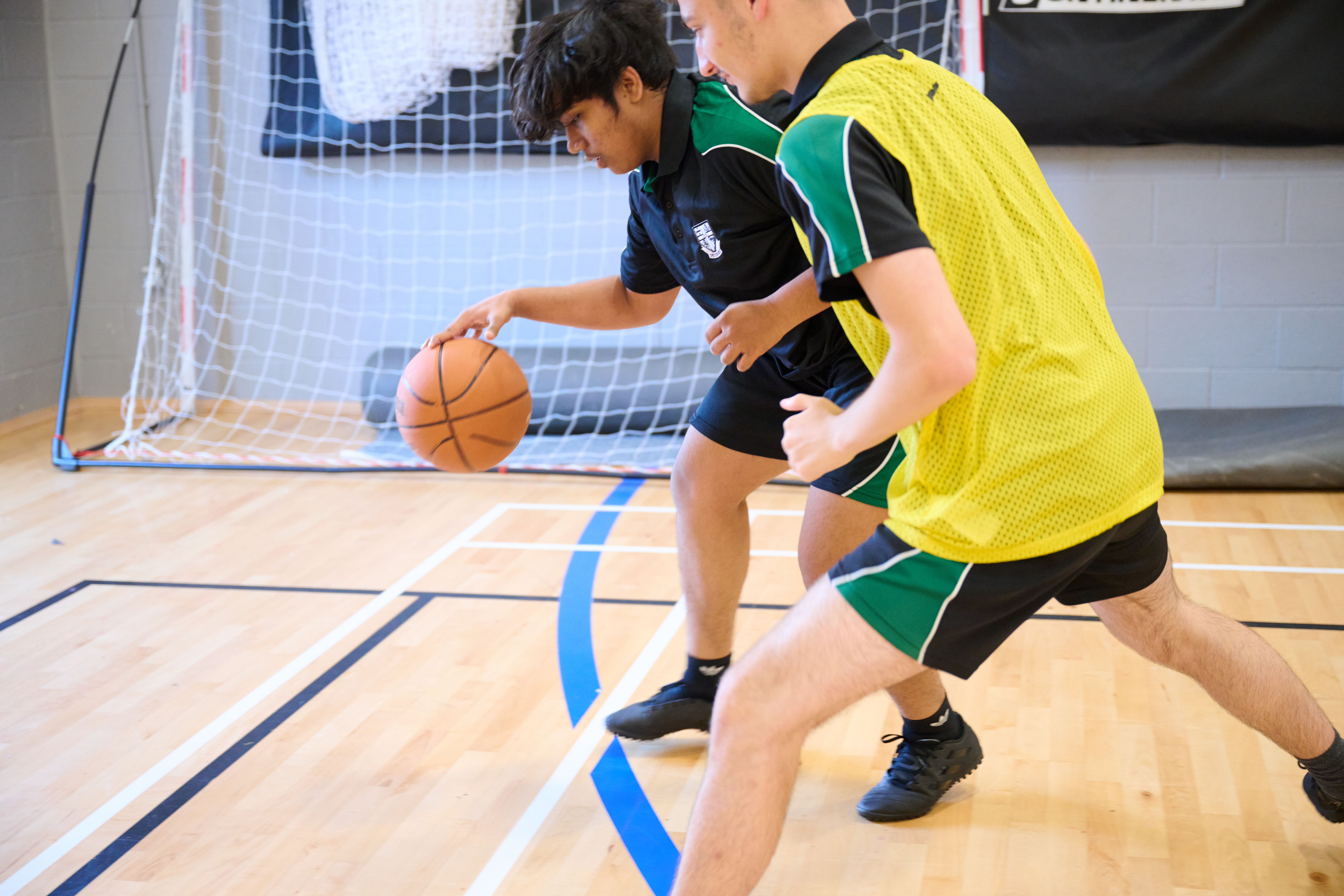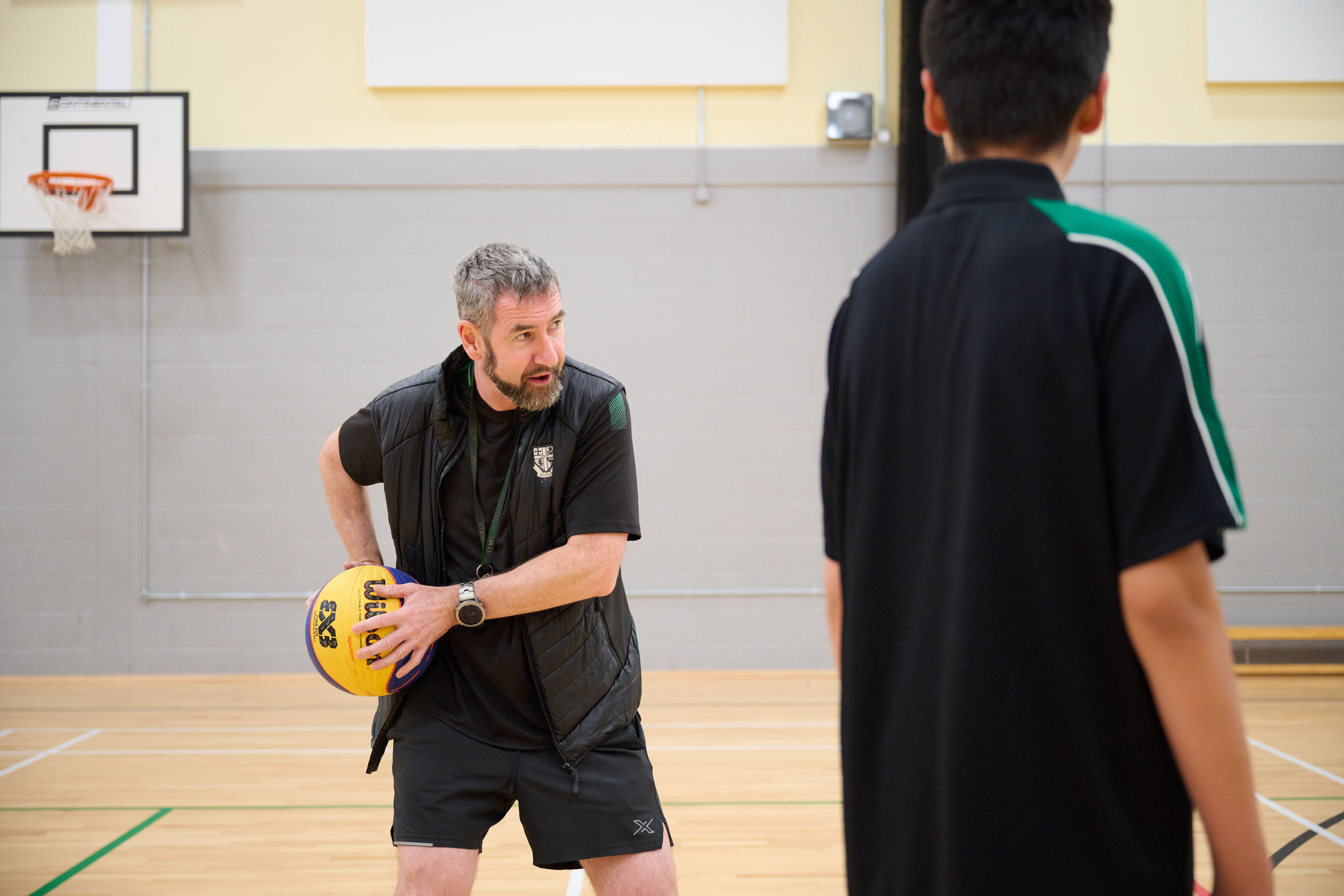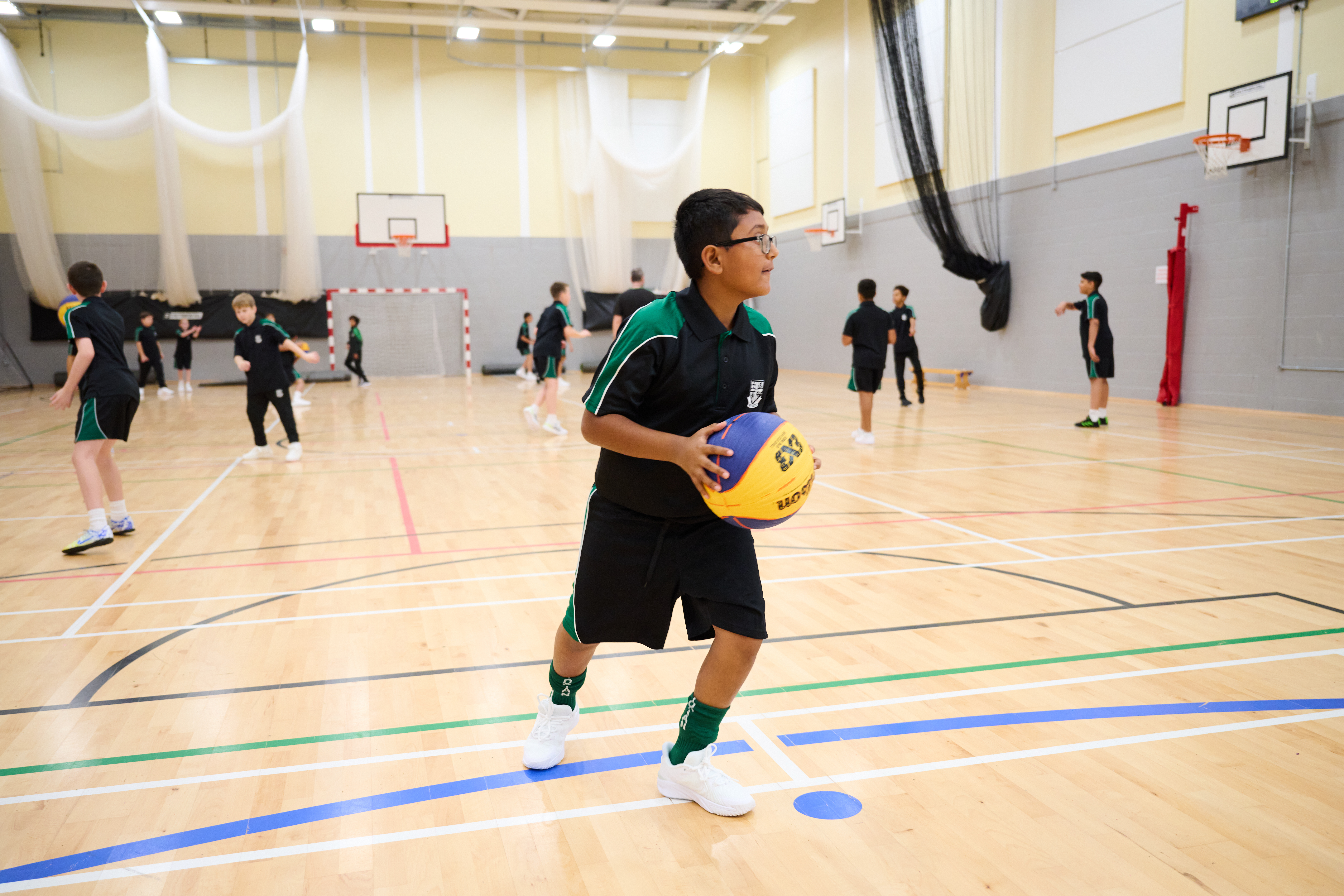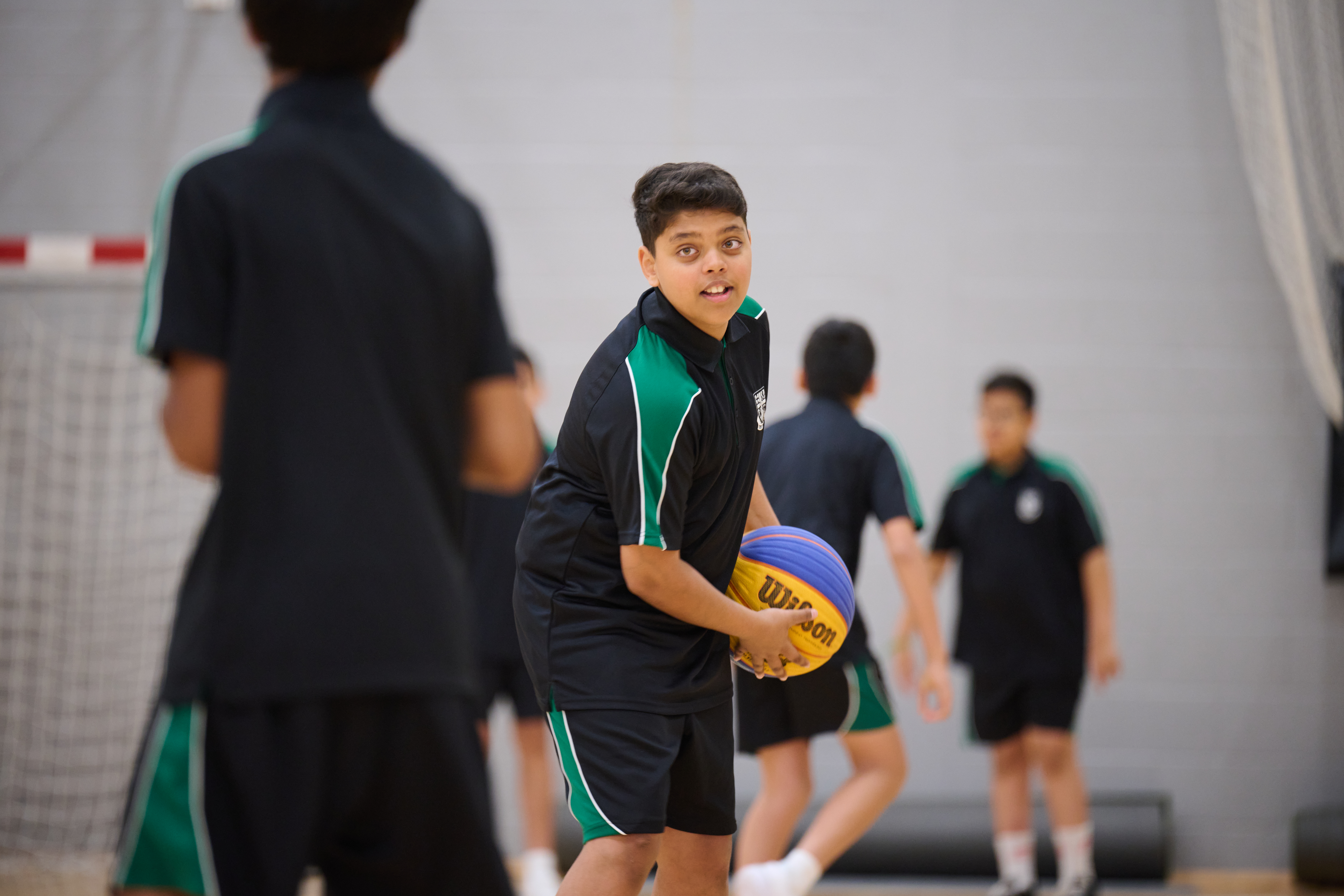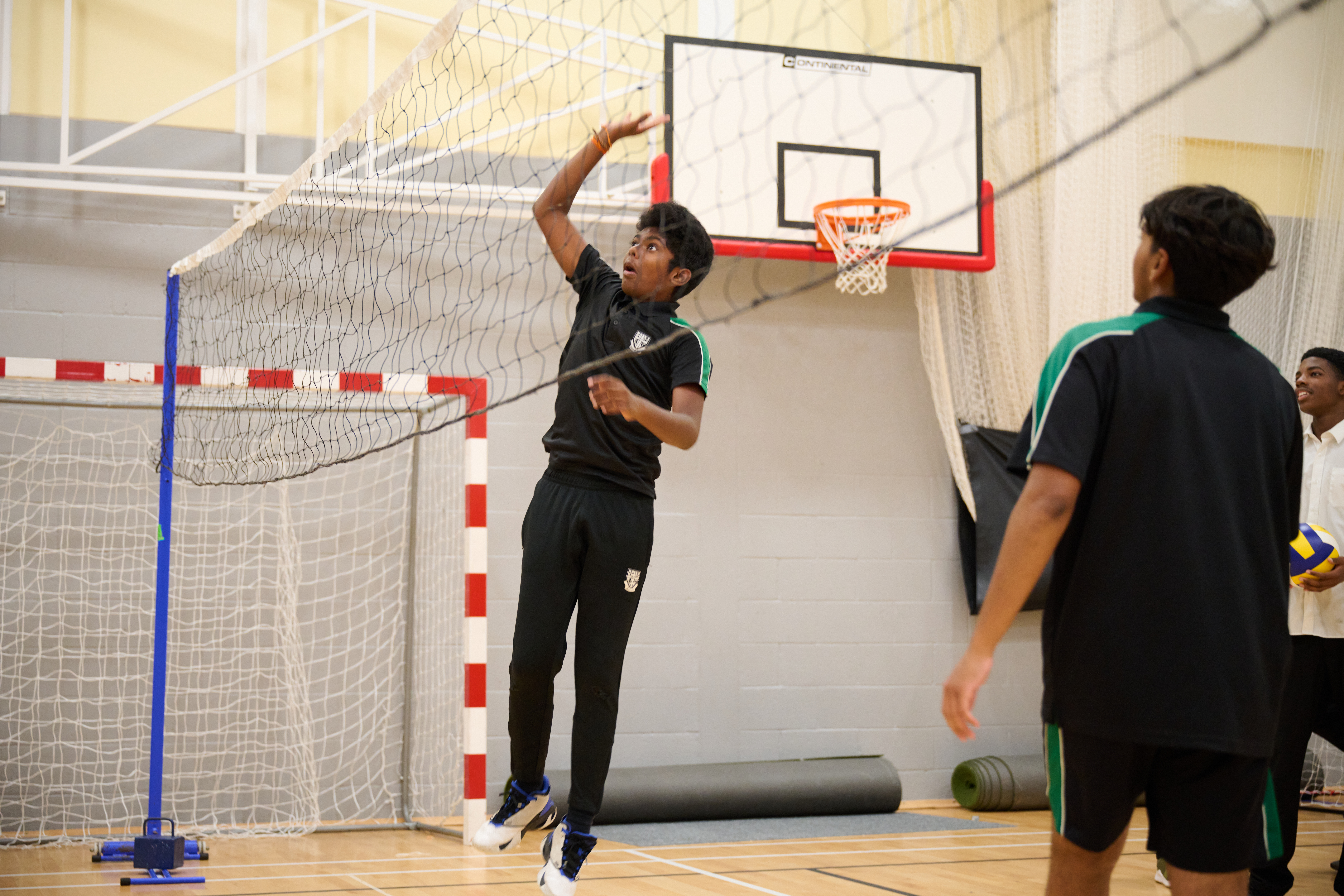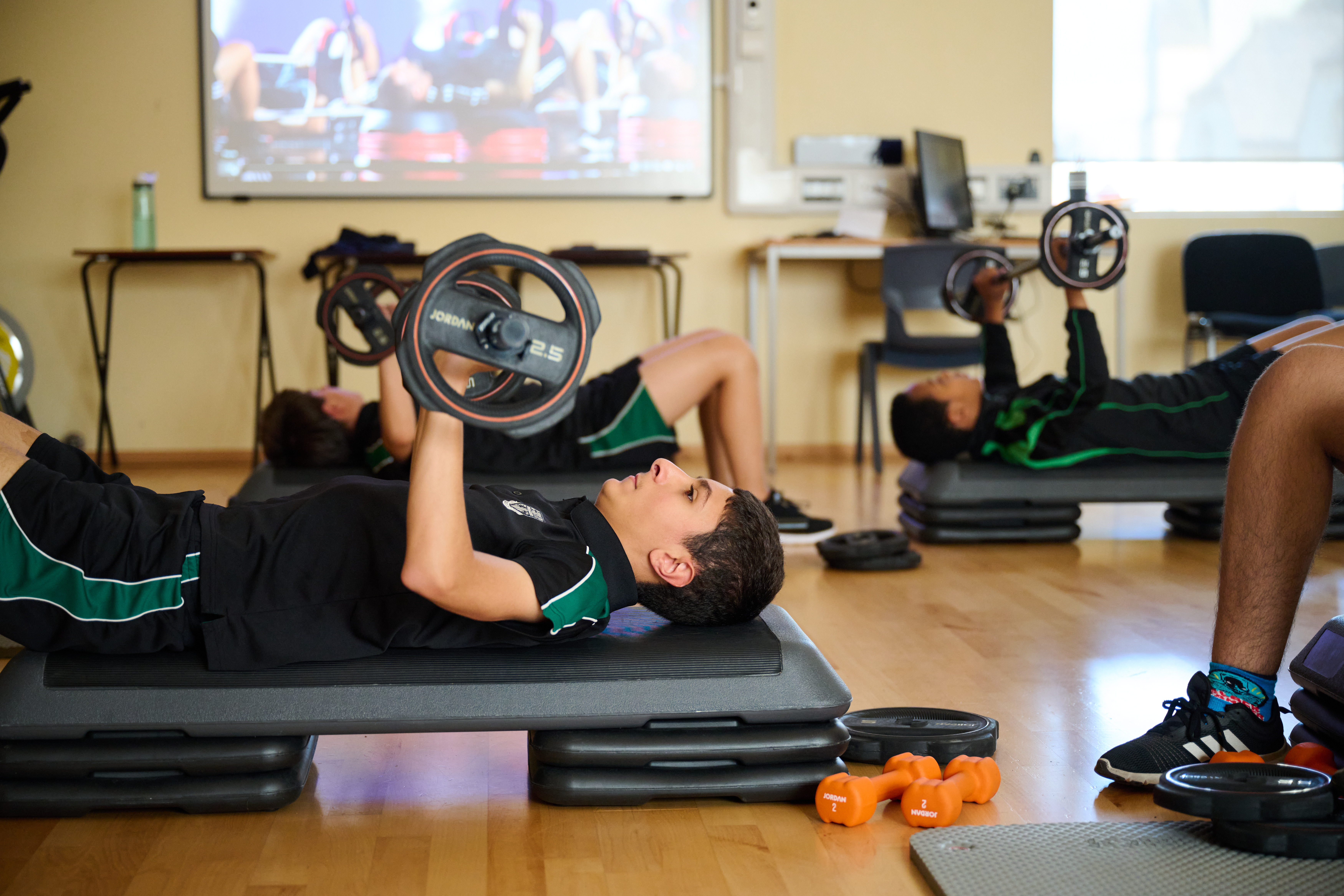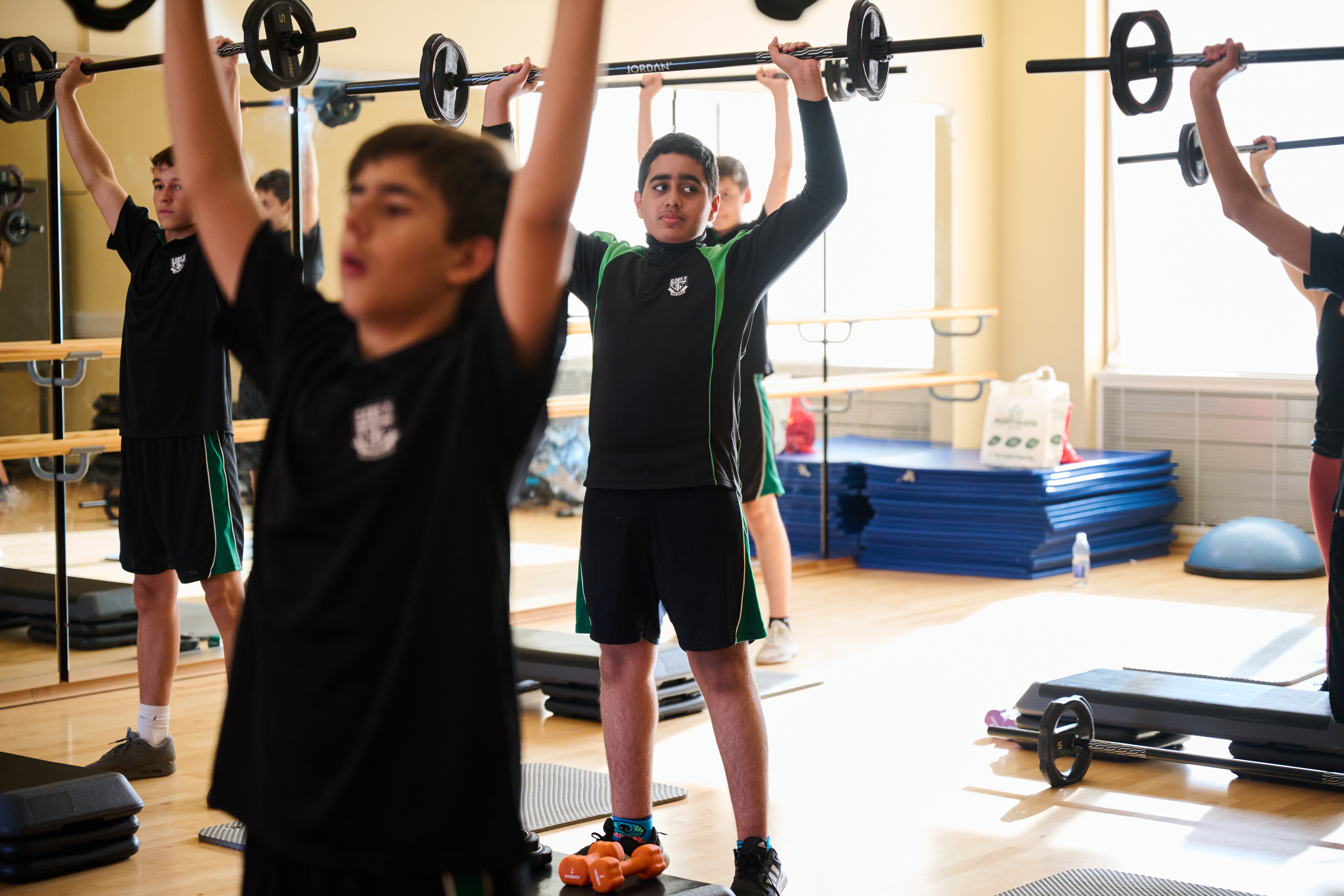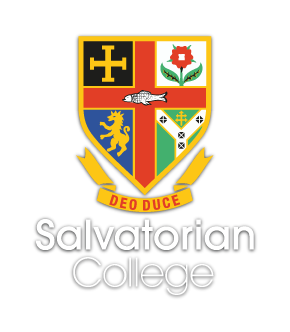Physical Education
Physical Education
‘The most unlikely of people, in the most improbable of circumstances, can become extraordinary.’ John Amaechi OBE is an English American psychologist, consultant and former professional basketball player.
At Salvatorian College we recognise the importance of PE and the role it has to play in promoting long term, healthy lifestyles. The intent of our PE curriculum is to provide all children with high quality PE and sport provision. It is our vision for every pupil to succeed and develop both personally and collectively achieving their potential as well as learning how to lead physically active lifestyles. We strive to inspire our pupils through fun and engaging PE lessons that are enjoyable, challenging, and accessible to all. We want our pupils to appreciate the benefits of a healthy and physically active lifestyle.
Through our teaching of PE, we will provide opportunities for pupils to develop values and transferable life skills such as fairness and respect as well as providing them with opportunities to take part in competitive sport. Our students are also encouraged to nurture personal skills such a resilience, tolerance, and teamwork through the vehicle of sport.
Our Staff
Mr A Creamer – Head of Physical Education
Mr S Malik – Teacher of PE (Fixture Secretary)
Mr A Templeton – Teacher of PE
Mr D Cooper – Teacher of PE
Mr O Ezeigwe – Teacher of PE
Key Stage Three
KS3: 2hrs per week (Years 7-9)
Pupils’ understanding of various sports is built upon throughout the academic year. There are three boy’s classes for each lesson.
Students will be exposed to Physical Education vocabulary to give an understanding, so they understand how and why their sporting actions take place. Key Stage 3 is a key phase in helping students to be able to perform sports to a high standard whilst also educating them on some of the key physiological components and ways to improve their own performance.
This understanding will become transferable to any further study that students wish to undertake as they move further on into GCSE Physical Education as we look to embed some of the key knowledge they will need to know.
Within the PE Faculty, we are passionate about providing students with opportunities to enjoy and excel in physical activity as both individuals and as part of teams. We aim to develop the students holistically so that they are inspired and equipped for lifelong participation in physical activity. Therefore, we aim to ensure students experience high-quality learning and a broad and enriching extra-curricular program.
Develop knowledge of and performance in the fundamental movement skills and components of fitness: Agility, Balance, Coordination, Speed & Endurance. Develop knowledge of and performance in the core/fundamental skills and techniques required to be successful in a range of sports so that students can perform to their personal best.
Develop an understanding of key rules in a range of sports so that students can perform effectively and safely.
Students will study: Rugby, Football, Basketball, Cricket, Athletics, Table Tennis, Badminton and Gymnastics (Floor).
Key Stage Four
KS4: 2 hours per week
GCSE (1 hour theory, 1 hour practical)
CORE PE (2 hours per week)
There is a selective GCSE pathway available to pupils at KS4. The GCSE course followed by the department is the OCR GCSE Physical Education 9-1.
In GCSE Physical Education students will learn five main areas for theory PE – Anatomy and Physiology, Physical Training, Socio-Cultural Influences, Sport Psychology and Health, Fitness and Well-Being. In these areas, they are expected to understand the knowledge of each topic, discuss the impact on health, fitness, and exercise, and apply this information to sporting examples.
The ability to apply knowledge to sporting examples is held as a high priority in classwork and homework exercises which are usually based around exam questioning. In addition, students will be assessed in 3 sports where they excel with the primary focus being on how effective and successful their performance is in a competitive situation.
The final assessed area is a piece of work that draws on the student’s ability to apply their knowledge of their sport, physical components, knowledge of movement analysis, and ability to suggest ways to improve in their sport.
Core PE will follow a similar model to KS3 Year 9 PE where students are engaged in physical activity and challenged to build personal skills that can be applied to wider society such as; Teamwork, Leadership, and Resilience.
In key stage 4 PE’s focus is on helping students to continue to develop and apply their learned skills in a range of games for understanding activities. Alongside a clear focus on students developing more responsibility for developing their understanding of the social, emotional, and physical benefits of sport and becoming inspired for lifelong participation. Therefore, at the start of year 10, PE classes will have the opportunity to experience one of two pathways to follow.
Key Stage Five
OCR A-level Physical Education
In Unit 1, students explore how the skeletal, muscular, cardiovascular, and respiratory systems function and the fundamentals of the energy systems. This is an externally assessed unit.
In Unit 2, students explore client screening and lifestyle assessment, fitness training methods, and fitness programming to support improvements in a client’s health and well-being. They will carry out an externally assessed supervised task, where they are given a case study one week before the exam and are allowed to bring in preparatory work with them.
In Unit 3, students explore the knowledge and skills required for different career pathways in the sports industry. Students will take part in, and reflect on; a personal skills audit, career action plan, and practical interview assessment activities. This will assist students in developing a wider knowledge of how to apply for jobs.
The optional unit we have chosen is Unit 6, Sports Psychology and this unit covers the psychological dimensions of sport and introduces psychological techniques that can be used to enhance performance. The evaluation of these psychological dimensions and the application of psychological techniques are key to achieving a top grade.
Links to Future Pathways
Within the PE Department at Salvatorian College, we are constantly looking to inspire and develop a new level of talent both on and off the field of play. The sports and leisure industry has been one of the most developing over the last twenty years, with the number of jobs created for those who are not only performers, growing rapidly. The practical and theoretical knowledge students acquire here, provide them with the first step into the world of sport, allowing them to sample and learn about many different areas and aspects of sport.
Diet and Nutrition
Sport Psychology
Sport Management
Sport Development
Professional Coaching
Sport Media
Sport Owner
Sports Administration
Sports Coach
Fitness Instruction
Recreational Group Leader
Personal Trainer
Outdoor Activity Provider
Event Organiser
Sport Therapist
Student Gallery
